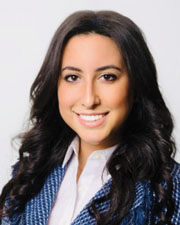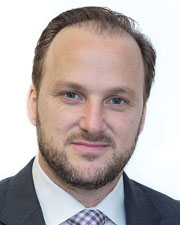
Sahn Ward Coschignano


Now that 2018 is here, many of us will resolve to eat better and exercise more often in the New Year. In NYC, workout enthusiasts and those looking to “get back to the gym” have many options on where, when, and how they choose to exercise. Many resolutioners will also make the internal commitment to pursue their dream of opening a fitness studio to help others achieve their health goals. Often, this dream of opening their own health club, spin studio, boxing gym, karate dojo, or other exercise-based establishment, does not include navigating the process of securing the required permits to operate legally in the five boroughs. We often receive calls asking us to explain the process and the costs involved.
In NYC, gyms, fitness studios and spas are considered Physical Culture or Health Establishments (PCE), as defined by the Zoning Resolution of the City of New York (ZR). According to the ZR, a PCE is “any establishment or facility, including commercial and non-commercial clubs, which is equipped and arranged to provide instruction, services, or activities which improve or affect a person’s physical condition by physical exercise or by massage.” PCEs are only permitted in certain enumerated commercial and manufacturing zoning districts by special permit issued by the NYC Board of Standards and Appeals (BSA). Outside of these districts, PCEs are not permitted, and we caution anyone exploring properties for a proposed PCE to first confirm that the property is located in a zoning district that permits the special permit. This process was enacted in the late 1970s as a way for NYC to curb brothels disguised as massage parlors, and many have opined, both inside and outside of the fitness industry, that this special permit is no longer necessary. That said, it is still the law, and this article is intended to explore generally the process to obtain the special permit.
To secure the special permit, applicants must first file a complete application with the NYC Department of Buildings (DOB) to secure an “objection,” which will state that the proposed use as a PCE requires a special permit from the BSA under Section 73-36 of the NYC ZR. This process of obtaining a DOB “objection” is required for any BSA variance or special permit, and is not unique to PCEs. Without the DOB “objection,” the BSA cannot entertain special permit or variance applications.
The PCE special permit application to the BSA is comprehensive, and includes application forms, ownership authorizations, maps, a detailed statement of facts and findings, site photographs, plans for existing and proposed conditions, zoning and sign analyses, a surrounding property owners list, and potentially City Environmental Quality Review forms, depending upon the s/f of the PCE. The BSA is required to refer the name of each principal, owner, and operator of the PCE for a background check with the NYC Department of Investigation. This process is unique to PCE special permits and ties back to the city’s original intention to eliminate brothels in NYC. BSA staff will then issue a “Notice of Comments,” which requires that certain questions be answered by the applicant and that clarifications be made to the application.
In order for the BSA to approve the PCE, certain findings must be made. These findings are both general for all special permits (ZR 73-03) and specific to the PCE use (ZR 73-36). Among other general and specific findings, the BSA must determine that the use does not impair the character or the future use or development of the surrounding area, that the hazards or disadvantages to the community at large are outweighed by the advantages to be derived by the community by the grant of such special permit use, and that the adverse effect on the privacy, quiet, light and air in the neighborhood will be minimized by conditions governing location of the site, design and method of operation.
The foregoing provisions give the BSA broad discretion to examine the impacts of the PCE on the building in which it’s located and the community at large. The BSA will closely examine the impact of sound and vibration on the building and the surrounding neighborhood. Depending on the specific operation and where it is located, the BSA may require comprehensive sound and vibration insulation. Other considerations include the proposed hours of operation and the number of patrons and employees that the PCE expects to generate; how the proposed PCE may impact the building and neighborhood, including whether the PCE shares access with other uses, including residential use; and ADA compliance, fire safety, as well as open ECB and DOB violations for the entire property. All of these factors must be addressed in detail in the statement of facts and findings that is filed with the application.
Once all of the application materials are submitted to the BSA, as per BSA rules of practice and procedure, they must then be forwarded to the local community board, borough president, and local city council member, as well as the Department of Buildings and the Department of City Planning for review. The local community board will review and hold a public hearing concerning the application. Once the community board has made its recommendation, and all questions from BSA staff are answered, the BSA will hold one or more public hearings. The BSA can vote to approve the application outright, approve the application subject to certain conditions, or deny the application. If approved, the term of the special permit is limited to 10 years. After 10 years, or earlier if there is any change in ownership or method of operation, the owners or prospective new owners of the PCE must file an application with the BSA for a renewal of the special permit.
Oftentimes, applicants will build out their space (typically under a separate DOB Alt-2) while the BSA special permit is pending, or will try to legalize the PCE use after they receive a violation for failing to obtain the special permit. This obviously carries additional risk, and raises a separate set of concerns for the BSA, which may require a more comprehensive review. It is possible that the BSA, through the legalization, may require that the layout of the space be modified, or new soundproofing be installed. This could lead to unexpected additional expenses for the PCE owner/operator.
The process of opening a PCE in New York City is extensive and complicated. It can take several months, possibly more than a year on a difficult case, but it is not, however, impossible. Understanding the requirements and the path to obtaining a PCE special permit are an essential first step for anyone interested in opening a PCE, or who is working with an individual or corporation who is looking to open and operate a PCE in New York City.
Daniel Braff is a member and partner and Joshua Brookstein is an associate at Sahn Ward Coschignano, PLLC of Uniondale, N.Y.


